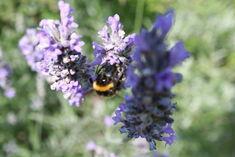
Major stakeholders in the UK beekeeping industry met last week to discuss the crisis of the declining bee population.
The group - British Beekeepers Association (BBKA), the Bee Farmers’ Association (BFA), the National Farmers’ Union (NFU) and Rowse Honey - strongly endorsed BBKA’s campaign for increased DEFRA funding for bee health research.
Rowse Honey Ltd confirmed its commitment to the industry by pledging to invest £100,000 in honeybee health research over the next three years, and the BBKA and BFA have already committed funds to support research into bee health.
The group has agreed to meet regularly in the months ahead to campaign, monitor and act in concert in the face of critical declines in the bee population. It calls on DEFRA to reconsider its position with urgency, and agree to fund the necessary research.
Although the discussion ranged across a number of issues, the group united in the view that pests and diseases are the key priority, that there is an urgent need to fill gaps in our knowledge and find solutions to the problem, and the importance of DEFRA prioritising research funding for disease control to support of the industry’s own action and initiatives.
Rowse Honey is greatly concerned by the shortage of British honey, which will run out in the supermarkets by Christmas.
It has been estimated that there are 44,000 beekeepers in the UK, with a total of 274,000 hives. Of these some 300 are commercial beekeepers, which are members of the BFA, with 50,000 hives and the remainder are keen amateurs. Some 100 years ago there were around one million beehives; this reduced to 400,000 in the 1950s and further reduced to the total of 274,000 today. The feral honeybee population has been largely wiped out by disease in the last 15 years.



